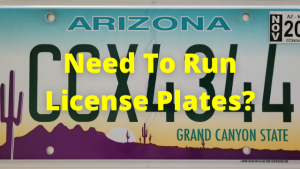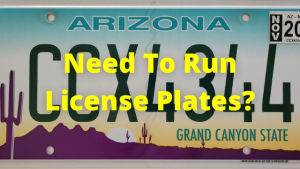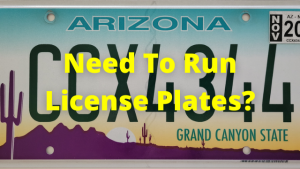
Understanding VIN Lookup by License Plate for Private Investigators
As a private investigator, one of the essential services you might be called upon to provide is the lookup of Vehicle Identification Numbers (VINs) from
As a private investigator, navigating the world of Georgia license plate lookups can be tricky. The Drivers Privacy Protection Act (DPPA) adds another layer of complexity. Here’s a breakdown to help you leverage this tool effectively while staying compliant.
Why PIs Use Georgia License Plate Lookups
License plate lookups in Georgia are a valuable asset for PI work. Here are some key situations where they come in handy:
Understanding DPPA Restrictions
The DPPA restricts the disclosure of certain personal information tied to vehicle registrations. This means a basic lookup won’t reveal the owner’s name or address. However, there are exceptions for licensed investigators with a legitimate business need.
Obtaining Information Under DPPA
To access information restricted by the DPPA, you’ll need to:
Alternative Strategies
While license plate lookups offer valuable insights, here are some alternative strategies to consider:
The Takeaway
Georgia license plate lookups are a powerful tool for PIs, but the DPPA adds a layer of complexity. By understanding the restrictions and employing alternative strategies when necessary, you can leverage this resource effectively while remaining compliant with the law. Remember, consulting with legal counsel can provide further guidance specific to your investigation.
Find Vehicle Owner by License Plate. Search results include Owner Information, License Plate, Registration Expiration, Vehicle Year/Make/Model, VIN
Q- Can anyone order a license plate search for any purpose?
A- No. Federal law and many state laws limit access to one of the permissible purposes stated above.
Q- How does Lance Casey & Associates verify that the DPPA Permissible Purpose I select is valid?
A- We don’t. By selecting your response, you are certifying to Lance Casey & Associates that you are in, and assume full responsibility for, compliance with the DPPA and you agree to indemnify, defend and hold Lance Casey & Associates harmless from any breach of the DPPA by you, your agents or contractors and any damages, fees and costs associated therewith.
Q- Who sees my DPPA Permissible Purpose selection?
A- Only Lance Casey & Associates. However, if we are audited by any governmental authority or if any criminal or civil litigation arises as a result of your search, we are compelled to provide your identifiable information, including the DPPA Permissible Purpose you selected.
Q- Can I get into trouble for selecting an invalid DPPA Permissible Purpose?
A- Yes. If, as a result of any criminal or civil litigation, it is determined that you obtained protected DPPA information under false pretenses, you could be held criminally and/or civilly liable.

As a private investigator, one of the essential services you might be called upon to provide is the lookup of Vehicle Identification Numbers (VINs) from

As a private investigator, understanding and adhering to the legal frameworks that govern our operations is paramount, especially when it involves sensitive information. The Driver’s

In Georgia, license plate lookups are a tool commonly used by individuals and professionals to obtain information about a vehicle. While some may seek a

who owns this license plate lookup Complete the form below to order a license plate lookup. Are you currently required to who owns this license

where to lookup a license plate number Complete the form below to order a license plate lookup. Are you required to where to lookup a

where can i lookup my car license plate number Complete the form below to order a license plate lookup. Are you presently forced to where